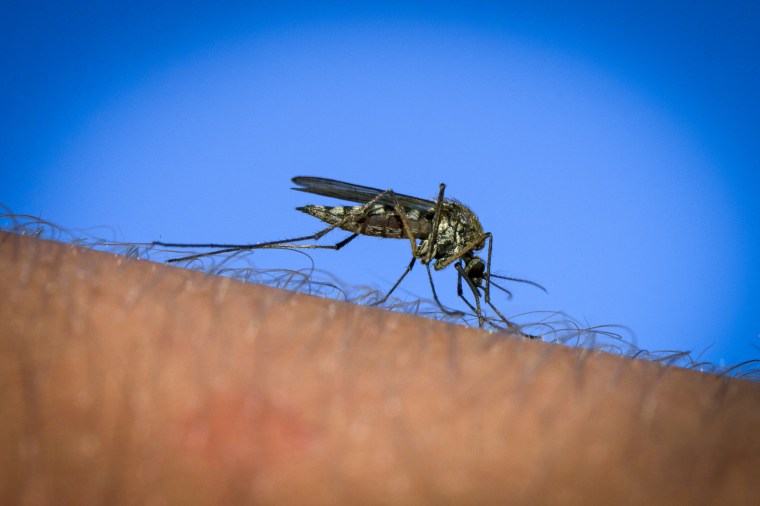[ad_1]
A New Hampshire man has died from eastern equine encephalitis, or EEE, a rare but deadly virus spread by mosquitoes, the state’s Health Department announced Tuesday.
It’s the first EEE death reported in the United States so far this year. The man, identified by his family as 41-year-old Steven Perry, had been “hospitalized due to severe central nervous system disease,” New Hampshire health officials said.
Perry had been healthy with no underlying medical conditions, his family told NBC10 Boston, but the disease progressed rapidly.
The case is the fifth this year. EEE cases have been reported in Massachusetts, New Jersey, Vermont and Wisconsin, according to the Centers for Disease Control and Prevention.

The nation is in the midst of peak mosquito season, as the insects tend to be most active in August and September.
“The risk will continue into the fall until there is a hard frost that kills” the mosquitoes, New Hampshire’s state epidemiologist, Dr. Benjamin Chan, said in a news release Tuesday.
The Massachusetts Public Health Department announced that insecticide sprays would begin this week following a case of EEE in a man in his 80s. Several Massachusetts towns said they will close public parks from dusk until dawn, when mosquitoes are most active.
While many people with EEE have no symptoms, others develop symptoms typical of many viruses: fever, chills, body aches, vomiting, diarrhea or fatigue. Sometimes, encephalitis, an inflammation of the brain, can occur, as well as meningitis, an inflammation of the membranes surrounding the brain and spinal cord.
This year, so far, is not a record-breaker for the virus. Last year, seven cases were reported. Thirty-eight were logged in 2019.
But health authorities are always on alert for EEE cases because of its high mortality rate. About a third of patients die, usually within 10 days after their symptoms begin, according to the CDC.
What’s more, the CDC says that many of those who recover are left with long-term problems, including mild to severe intellectual disability, personality disorders, seizures, paralysis and cranial nerve dysfunction.
The U.S. is also seeing high numbers of another mosquito-borne virus: West Nile. As of Tuesday, the CDC said that 289 cases had been reported in 33 states. The majority, 195, had evidence of neuroinvasive disease.
“Everybody should take steps to prevent mosquito bites when they are outdoors,” Chan said.
Those steps include:
- using bug spray with DEET or picaridin
- dressing in loose-fitting clothes that cover the arms and legs
- emptying standing water outside houses, including dog bowls, flower pots, bird baths and toys.
[ad_2]
Source link


